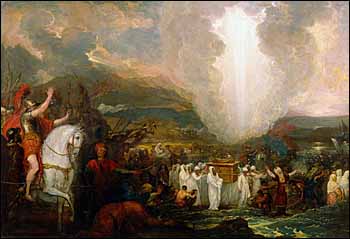Free E-Mail
Bible Studies
Beginning the Journey (for new Christians). en Español
Old Testament
Abraham
Jacob
Moses
Joshua
Gideon
David, Life of
Elijah
Psalms
Solomon
Songs of Ascent (Ps 120-135)
Isaiah
Advent/Messianic Scriptures
Daniel
Rebuild & Renew: Post-Exilic Books
Gospels
Christmas Incarnation
(Mt, Lk)
Sermon on the Mount
(Mt 5-7)
Mark
Luke's
Gospel
John's Gospel
7 Last Words of Christ
Parables
Jesus and the Kingdom
Resurrection
Apostle Peter
Acts
The Early Church
(Acts 1-12)
Apostle Paul
(Acts 12-28)
Paul's Epistles
Christ Powered Life (Rom 5-8)
1 Corinthians
2 Corinthians
Galatians
Ephesians
Vision for Church
(Eph)
Philippians
Colossians,
Philemon
1
& 2 Thessalonians
1 & 2 Timothy,
Titus
General Epistles
Hebrews
James
1 Peter
2 Peter, Jude
1, 2, and 3 John
Revelation
Revelation
Conquering Lamb of Revelation
Topical
Glorious Kingdom, The
Grace
Great Prayers
Holy Spirit, Disciple's Guide
Humility
Lamb of God
Listening for God's Voice
Lord's Supper
Names of God
Names of Jesus
Christian Art
About Us
Podcasts
Contact Us
Dr. Wilson's Books
Donations
Watercolors
Sitemap
 Benjamin West, 'Joshua passing the River Jordan with the Ark of the Covenant ' (1800), oil on wood, 26.6 x 35.2 in,, Art Gallery of New South Wales. |
By the time Joshua became the leader of Israel, entering the Promised Land had been the dream of God's people for the forty years, ever since Moses had shared God's promise with the elders of Israel:
"I have promised to bring you up out of your misery in Egypt into the land of the Canaanites, Hittites, Amorites, Perizzites, Hivites, and Jebusites -- a land flowing with milk and honey." (Exodus 3:17; 4:29)
Promises
Of course, the promise was much older than Moses. It had been made to each of the Patriarchs, first to Abraham, and then to each successive generation::
"Know for certain that your descendants will be strangers in a country not their own, and they will be enslaved and mistreated four hundred years. But I will punish the nation they serve as slaves, and afterward they will come out with great possessions.... In the fourth generation your descendants will come back here, for the sin of the Amorites has not yet reached its full measure.... (Genesis 15:13-14, 16)
It was called the Promised Land because God had promised it to them. Sometimes we question what right the people of Israel had to displace these peoples from the Promised Land. After all, they were there first.
Right by Might
By what right do peoples lay claim to any land? I'm not asking the legal question here, but the practical and historical question. How does this actually work in practice?
- We were here first. We won't leave, and we are strong enough to resist.
- We were here before you. We took this land from its former inhabitants. We are stronger militarily.
- We purchased this land from its former inhabitants. We have the greater economic strength and thus are displacing them.
Of course, there is sometimes the concept of "original inhabitants." But who can go back into the sands of time to determine that? Even in "virgin wilderness" such as the American West in the 1800s, the natives had warred with each other over territory. To which tribe does the land belong? The one who possessed it most recently? The one who possessed it when the Colonists came? In human affairs, it comes down to strength. Which people is stronger? They will possess the land.
I'm not saying that might makes right or that the mighty are morally deserving of the land. Only that might is how land changes hands in real life. And real life is what the Bible records and reflects upon..
Under Joshua and "the commander of the army of the LORD" (Joshua 5:14), Israel had become a mighty nation. They were weak when they trusted in their own strength (Joshua chapters 7 and 9), but strong when they went out at the direction of the LORD.
Right by Law
Now let's look at the legal question. The United Nations has developed a comprehensive system of international law governing aggressor nations. Most of us have developed our sense of right and wrong from these international treaties. But for the purposes of studying Joshua, we must suspend our own sense of right and wrong for a while. It is three millennia too late. It isn't fair for us to judge one culture by a distant culture's standards. Israel's claim to the Promised Land needs to be looked at on its own merits..
What was the Israelite's "legal" claim? Their God claimed that the land was first of all his land (Numbers 35:34; Psalm 24:1). That he created it, as well as all the peoples of the earth. Moreover, it was his right to judge the peoples of the earth. He promised the land to Abraham, but did not give it to him at that time "for the sin of the Amorites has not yet reached its full measure..." (Genesis 15:16).

Lessons in book formats are available. |
Does not the Owner of the land have a right to judge who shall live in it? Does not the Judge of the Whole Earth (Genesis 18:25) have a right to punish a people for their sin by displacing them from his land? God certainly punished the Israelites by displacing them from his land when they sinned (Isaiah 10:5-6).
Thus, when we come to the question of Israel displacing the Amorites and other idol-worshippers from the Promised Land, we need to consider God's ownership, God's righteous judgment, and God's strength.
Copyright © 2025, Ralph F. Wilson. <pastor![]() joyfulheart.com> All rights reserved. A single copy of this article is free. Do not put this on a website. See legal, copyright, and reprint information.
joyfulheart.com> All rights reserved. A single copy of this article is free. Do not put this on a website. See legal, copyright, and reprint information.
 |

|
In-depth Bible study books
You can purchase one of Dr. Wilson's complete Bible studies in PDF, Kindle, or paperback format -- currently 48 books in the JesusWalk Bible Study Series.
Old Testament
- Abraham, Faith of
- Jacob, Life of
- Moses the Reluctant Leader
- Joshua
- Gideon
- David, Life of
- Elijah
- Psalms
- Solomon
- Songs of Ascent (Psalms 120-134)
- Isaiah
- 28 Advent Scriptures (Messianic)
- Daniel
- Rebuild & Renew: Post-Exilic Books
Gospels
- Christmas Incarnation (Mt, Lk)
- Sermon on the Mount (Mt 5-7)
- Luke's Gospel
- John's Gospel
- Seven Last Words of Christ
- Parables
- Jesus and the Kingdom of God
- Resurrection and Easter Faith
- Apostle Peter
Acts
Pauline Epistles
- Romans 5-8 (Christ-Powered Life)
- 1 Corinthians
- 2 Corinthians
- Galatians
- Ephesians
- Philippians
- Colossians, Philemon
- 1 & 2 Thessalonians
- 1 &2 Timothy, Titus
General Epistles
Revelation
Topical

 To be notified about future articles, stories, and Bible studies, why don't you subscribe to our free newsletter, The Joyful Heart, by placing your e-mail address in the box below. We respect your
To be notified about future articles, stories, and Bible studies, why don't you subscribe to our free newsletter, The Joyful Heart, by placing your e-mail address in the box below. We respect your